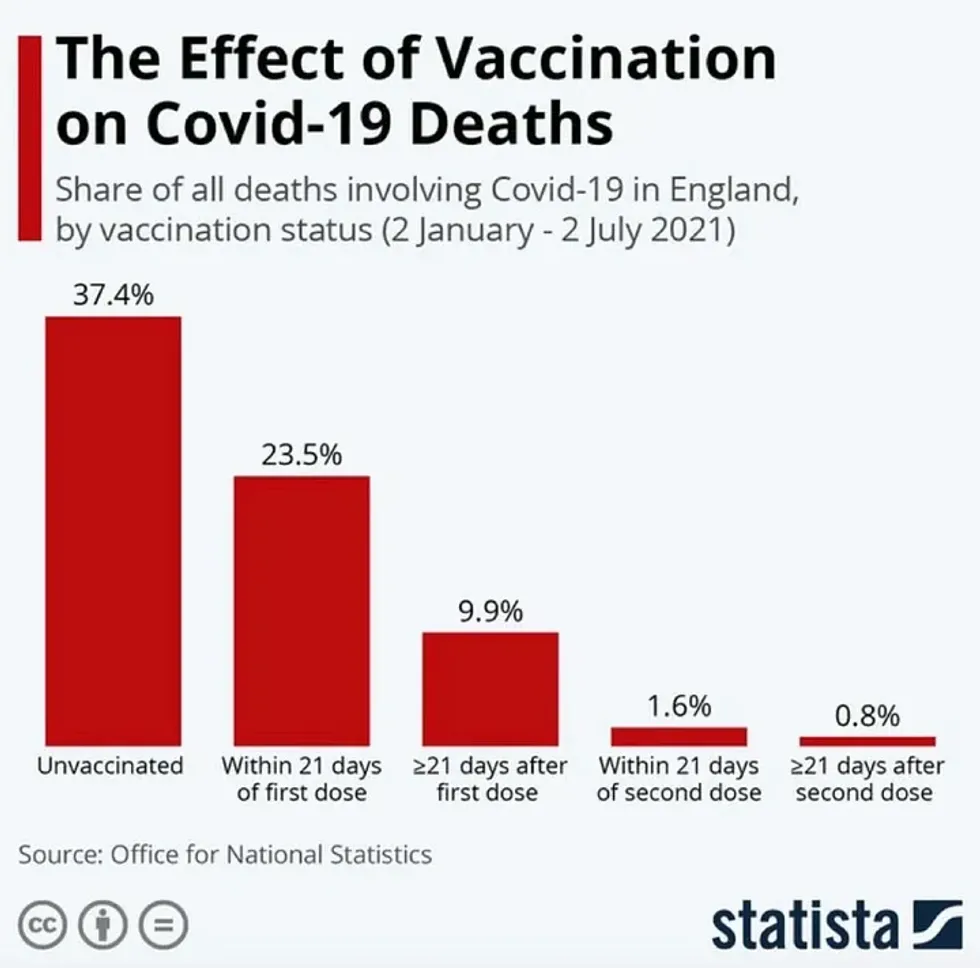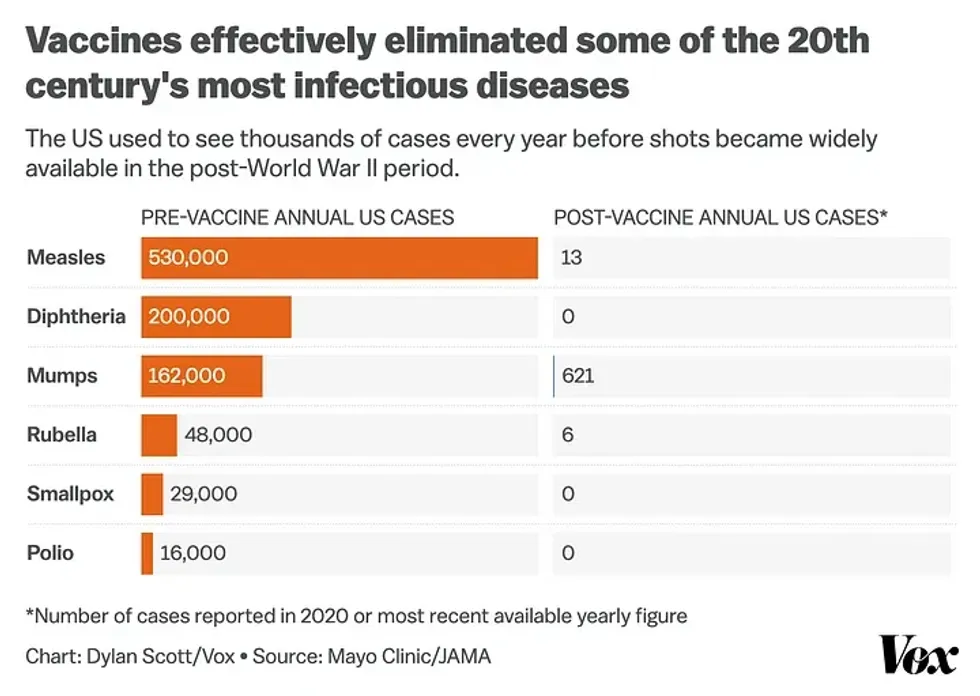For a century, polio epidemics made it one of the world’s most terrifying diseases. A 1916 outbreak in New York City killed over 2,000 people; another in the U.S. in 1952 claimed over 3,000. Children were especially targeted, over 60,000 infected yearly, facing lifelong severe spinal injuries requiring braces, crutches, and wheelchairs, and the dreaded iron lung, an artificial respirator, or premature death.
Wealth and status proved no barrier, as evidenced by President Franklin Roosevelt who was diagnosed at age 39 in 1921 with polio and endured it the rest of his life. What was a safeguard was the first vaccine, developed by virologist/medical researcher Jonas Salk. The announcement on April 12, 1955 by University of Michigan School of Public Health scientist Thomas Francis, Jr., who declared it “safe, effective, and potent,” was greeted as a national celebration, spread rapidly over radio, television, and wire services.
Parents lined up to vaccinate their young children, plenty did not. Teen immunization levels stagnated at just 0.6 percent. Enter Elvis. He agreed to go on the popular Ed Sullivan TV show, not to sing, but to get publicly vaccinated, viewed by millions. Vaccination rates among American youth soared to 80 percent in just six months. Overall annual cases of polio plummeted within a year from 58,000 to 5,600. By 1961, only 161 cases remained. After an oral vaccine followed, polio disappeared in the U.S. completely.
Yet polio never vanished globally, especially in underdeveloped nations, as in Africa, and in war zones, including in Gaza today—driven by Israel’s decimation of public health protections during its catastrophic and ongoing assault. In 2022, the first U.S. case in decades was reported by the New York State Department of Health.
Defense against dangerous epidemic outbreaks requires constant vigilance, and public support for full embrace of public health safety measures, including vaccinations. The experience of Trump’s first tenure is far from reassuring, especially his abominable failure in the face of Covid-19, the worst global pandemic in a century which ultimately cost the lives of over 1.2 million Americans.
Initial skepticism over the polio vaccine has a long antecedent in the U.S., described early in the Covid pandemic by what Los Angeles Times writer Carolina Miranda aptly termed “toxic individualism” and rugged individualism. It is traceable to a virulent brew of misguided notions of individual liberty that undermine and sabotage the public good, or a commons of national and community interest. Much of its roots are linked to structural racism, as in the resistance to Civil Rights Movement measures, and continuing today in white opposition to reforms such as expansion of health care and other public programs, immigration rights, and other societal benefits.
That history provides context for the eruption of the anti-vax, anti-public health measures that exacerbated and prolonged Covid suffering and death and seeded the ground for opposition to other essential vaccines. It’s true, as medical ethicist Arthur Caplan writes, that much of “the damage to getting Americans to vaccinate has already been done… There are almost no serious state mandates for childhood vaccines. Parents who want to opt out are easily doing so, as can be seen by the resurgence in measles and whooping cough. Nearly 40% of teenagers are not up to date on the HPV vaccine even as Australia and Scotland are on the verge of eliminating cervical cancer thanks to serious immunization campaigns.”
Further, he adds “Democrats avoided vaccination as an issue this election year because they knew that, post Covid, vaccination has become something of a political third rail. Could Kennedy and [CMS nominee Dr. Mehmet] Oz make things worse—absolutely. But are matters already bad—sadly, yes.”
The Kennedy-Trump threat
Yet Kennedy and his coterie of other department heads can make matters much worse. With the imprimatur of a President-elect already lionized by an often-fawning base will likely discourage more resistance to vaccines that can turn schools into major disease vectors and hasten the spread of new epidemics sure to come.

Even in the wake of Covid, Kennedy, with his power as HHS Secretary has said he would pause NIH’s drug development and infectious disease research and shift its focus to chronic diseases that do need attention but not at the expense of combating global epidemics.
Kennedy has also indicated a desire to shutter “entire” FDA departments, which oversee safety and effectiveness of prescription drugs and vaccines. And he has threatened to purge FDA staff for “aggressive suppression” of unsafe products and therapies, such as raw milk, and discredited COVID treatments, including hydroxychloroquine.
There’s his lurid, scientifically refuted linkage of vaccines to autism and other conspiracies, such as his claim that Covid was bioengineered to exempt Chinese people, already targeted by Trump rhetoric that fueled hate crimes, and Ashkenazi Jews of Eastern Europe origin, reinforcing right-wing antisemitic bigotry.
And that’s not including his attack on fluoride in drinking waterwhich promotes oral health, as cited in a letter by 77Nobel Prize winners opposing Kennedy, or his speculated doubt that HIV causes AIDS and the effectiveness of AZT therapy.
Anti-vax consequences
Still, it is his fanaticism on vaccines that prompts the most alarm.
During the COVID-19 epidemic, Children’s Health Defense, a group Kennedy founded and led, petitioned the FDA to halt the use of all COVID vaccines. In a 2023 podcast, Kennedy proclaimed there is “no vaccine that is safe and effective,” and disputed CDC’s guidelines about if and when kids should get vaccinated.
The implications are alone enough for a mass movement to escalate pressure to block confirmation of Kennedy, and Trump’s nominees to lead the CDC, CMS, FDA, NIH and Surgeon General who mostly share his chilling views on vaccine safety. Multiple studies document what is at stake.

The World Health Organization estimates vaccines have protected 150 million lives over the past 50 years, and that 100 million were infants. About 4 million deaths worldwide are prevented by childhood vaccination every year. More than 50 million deaths can be prevented through immunization between 2021 and 2030. By 2030, it is estimated that measles vaccination alone can save nearly 19 million lives.
In November 2013, University of Pittsburgh researchers issued a similar study. It documented that about 103 million cases of disease had been prevented by vaccination since 1924. The disease with the most cases prevented was diphtheria, 40 million cases. Second was measles, 35 million cases.
Globally, reported Scientific American, measles vaccines, preserved 94 million lives over the past 50 years. It cited a 2024 Lancet study published in October that vaccines against 14 common pathogens protected 154 million people over the past five decades—that's a rate of six lives every minute. They have cut infant mortality by 40 percent globally and by more than 50 percent in Africa. Throughout history vaccines secured more lives than almost any other intervention.
Lancet found that each life defended through immunization contributed to 66 years of full health, without long-term linked to disease.Vaccines impact nearly every measurement of health equity, from improving access to care, to reducing disability and long-term morbidity, to preventing loss of labor and the death of caretakers.
Writing in Forbes, hardly a left-wing Trump critic, earlier this year, ER doctor/health researcher Arthur Kellerman also cited the Pittsburgh study, as well as Johns Hopkins data of nearly 88 million cases of illness. In 1900, he wrote, 30 percent of deaths in the U.S. occurred in children under 5 years of age. In 1999, they accounted for only 1.4 percent. "Vaccines," he concluded, "played a vital role in this progress.”
Measles, a highly contagious childhood disease that can lead to pneumonia and fatal brain swelling, declined rapidly after the first measles vaccine was introduced in 1963. But, the CDC cites 16 measles outbreaks in 2024. Kennedy’s alleged role in promoting vaccine misinformation during a deadly measles outbreak in American Samoa in 2019, which he denies, has also been widely reported. Unvaccinated families, writes Kellerman, “tend to cluster in communities defined by faith, culture or political ideology. When a highly contagious disease gets into such a community, an outbreak can occur. We’ve already seen localized outbreaks of measles, rubella, mumps, and pertussis.”
In 2022, Kennedy’s attorney and close advisor Aaron Siri petitioned the FDA to revoke approval of the polio vaccine for further study despite its long history of success.
Republican Senate Majority Leader Mitch McConnell, who endured polio as a child, has denounced the push “to undermine public confidence in proven cures” like the polio vaccine. Only a “miraculous combination of modern medicine and a mother’s love” saved him from paralysis he said in a statement. “The polio vaccine has saved millions of lives and held out the promise of eradicating a terrible disease. Efforts to undermine public confidence in proven cures are not just uninformed—they’re dangerous,” McConnell said.
Yet McConnell, and similar Republican critics have yet to publicly oppose Kennedy and his similar malefactors of health (to borrow FDR’s “malefactors of wealth” frame).
We can no longer count on Elvis to protect our children, families and communities. It is up to the rest of us.





